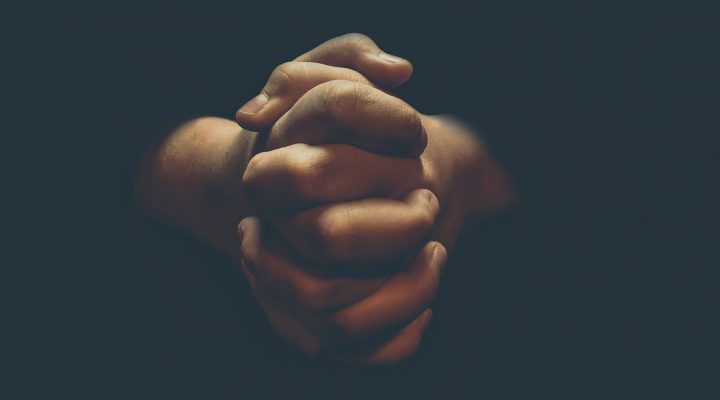On Sunday, July 16, at First Baptist Church, Highland Avenue, in Winston-Salem, N.C., Deacon Dr. Judge Kornegay, following the standard liturgy, led the morning prayer. He began by asking God’s blessing on the sick and the bereaved. His gentle yet impassioned cadence continued, as he prayed:
Dear Lord, we know that in our country we’ve got rampant violence, uncontrolled violence, we’ve got uncontrolled anger. Our problem, dear Lord God, is that so many people are just totally outraged about everything. There are many, many people angry with you even though they’ve never seen you, never met you. Their rage is almost unconscionable because to have anger toward a person you’ve never met, never spoken to, is insane.

Bill Leonard
Then Deacon Kornegay confessed:
We have a level of insanity going on in our country that is based on anger, anger, our desire to settle things with warfare and not words. The day that we decide, dear Lord, to talk out our problems, and let things be, that’s the day we start to gain peace in our country. Dear Lord, we know that technically the role of government is to help make the lives of the citizens better. Touch the leaders of our country, dear Lord, and help them to understand that their role as leaders of our country is to help make our lives more prosperous, more secure, more healthy. Touch them, dear Lord God, in such a way that they will cooperate with each other across the aisle and do those things that show we are one people, that we are benefiting from the government.
And then,
President Biden passed the infrastructure bill and a lot of folks on other side of the aisle didn’t want to support it, did not support it. Now they’ve got billions and billions and billions of dollars coming into their states and some people’s hearts are so hard that they won’t acknowledge where the money came from. They want to take credit for something they didn’t do. Help us, dear Lord, to be honest with ourselves and acknowledge what we’ve done and acknowledge what we didn’t do. Help us, dear Lord, to stand up and be counted as one of your disciples. Help us to be honorable people that we are secure, dear Lord God. Help us, dear Lord, to be your disciples to honor and glorify you. Help us to be your disciples to honor and glorify you.
Deacon Kornegay closed by praying for the congregation, gathered and online, blessed the church’s ministers and concluded: We ask, dear Lord, that you bring us a bright and beautiful tomorrow. Let us wrap our arms and our minds around tomorrow, let us be present in your today so we can do the things that we can do, that we know we should do to honor and glorify you. … Dear Lord, we have to understand that we bring our problems to you and leave them. These and other blessings we ask you in your Son Jesus Christ’s name. Amen
“I’ve been thinking about the ways in which the church in various forms past and present repeatedly helps us learn to pray.”
I transcribed these segments of the prayer from the church’s video of the service for several reasons.
- First, because it was a powerful moment to hear live and in person, as close to a biblical lament as I’ve experienced in a while. The deacon was not preaching at us, he was interceding for us and for the nation; simply beseeching God’s help and sustenance in a culture torn apart by “rampant violence” and “uncontrolled anger.”
- Second, because Deacon Kornegay’s words were measured, gentle and confident in God’s sustaining presence.
- Third, because the prayer carried us into the reality of the present moment in a country where acts of anger, violence and division have no bottom, day after day.
- Fourth, because the prayer reaffirmed words of the 46th Psalm: “God is our refuge and strength, a very present help in trouble.”
Since Sunday, I’ve been thinking about the ways in which the church in various forms past and present repeatedly helps us learn to pray. In our 26 years at FBC, Highland Avenue, those lessons continue. When we first joined in 1997, there was a deacon, now deceased, who, when offering the morning prayer, began, “Lord, we thank you that you woke us up this morning, and that we are clothed and in our right minds.” Then he would carefully take us, as the saying goes, “to the throne of grace.”
When we became friends, I once told the deacon I valued his prayers deeply, but as a student of history, I had to hedge my gospel bets that, statistically, any congregation of Baptists could all be in their “right minds” on the same Sunday. He smiled knowingly.
Nonetheless, in most religious communities, there are some persons who, in the words of the old preachers, “know how to get hold of God.” They reflect a depth of prayer and spirituality so clear that when the rest of us need to be sure we can “get through,” we go looking for them.
In our church such individuals are often identified as “mothers of the church,” women whose exemplary faith and strength of character undergird the grace of their praying. In the early Christian eras, “widows” apparently held something of the same distinction — persons of “peculiar piety” whose prayers were highly valued by the church.
In the words of one of another of our deacons, they know how to heal “the abyss of the heart.” Such prayer-filled persons are willing to stick their spiritual necks out; gamble (by faith) that God hears; and cultivate the presence of God in the discipline of prayer.
“Some Sundays I can’t even utter the Lord’s Prayer, but the gathered church does it for me.”
At its best, the church, the communion of saints, prays with us and for us, especially in times of present darkness, when we cannot pray ourselves. For sometimes life is so terrible that prayers won’t come, and we must hold on to the prayers that others can still offer. Some Sundays I can’t even utter the Lord’s Prayer, but the gathered church does it for me. Sometimes that’s all I’ve got; and it is enough.
Kathleen Norris says “good liturgy can act like an icon, a window into a world in which our concepts of space, time and even stone are pleasurably bent out of shape. Good liturgy is a living poem, and ceremony is the key. … Good ceremony makes room for all the dimensions of human experience in the hope that, together, we will discover something that transforms us. … Ceremony requires that we work with others in the humbling give-and-take of communal existence.”
Prayer is at the heart of good liturgy.
Perhaps continuing to learn to pray will help us continue to learn to change. Roberta Bondi cites Moses, “the great black Abba from the Sudan” who admonished: “If a (person’s) deeds are not in harmony with his (or her) prayer, (that person) labors in vain. The brother said, ‘What is this harmony between practice and prayer?’ The old man replied, ‘We should no longer do those things against which we pray.’”
Sound advice, as we all challenge the “rampant violence” that eventually confronts us all. In the name of Jesus. Amen.
Bill Leonard is founding dean and the James and Marilyn Dunn professor of Baptist studies and church history emeritus at Wake Forest University School of Divinity in Winston-Salem, N.C. He is the author or editor of 25 books. A native Texan, he lives in Winston-Salem with his wife, Candyce, and their daughter, Stephanie.
Related articles:
A primer on leading public prayer | Opinion by Doug Haney and Mark Wingfield
Who’ll be there at the end of your prayer? | Opinion by Bob Newell
Prayer might not be enough | Opinion by Terry Austin


